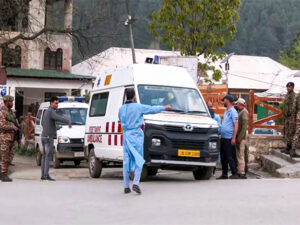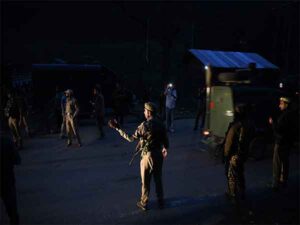Bhutan: Women-friendly mini tillers may shift gender-based division of labour in agriculture
Thimphu [Bhutan], April 11 (ANI): Under the Food Security and Agriculture Productivity Project Bhutan introduced women-friendly Indian-made mini tillers, that are used to uproot weeds in fruit gardens and vegetable fields, which may shift the gender-based division of labour in agriculture, according to The Bhutan Live.
For generations, ploughing fields has been traditionally viewed as a job reserved for men while harvesting and processing crops were seen as a job for women. However, with more and more women utilising mini tillers, the gender-based division of labour may be shifting.
In Bhutan’s Samtse, the women-friendly power mini tillers were distributed. One of the residents of Dorokha village in Samtse district, Chimi Dema, (41), has travelled to Samtse town to purchase one of the mini tillers, which was distributed by the district agriculture sector.
These tillers are part of the Food Security and Agriculture Productivity project aimed at improving agricultural productivity in the district, according to The Bhutan Live.
Prior to her purchase, Chimi takes the initiative to thoroughly study the mini tiller and become well-versed in its operating procedures.
As a mother of two, Chimi sees the mini-tiller as a means of achieving self-dependency and empowerment.
“Since the normal power tillers are big in size and strong, women cannot easily operate them. But this mini tiller is different. It is small and user-friendly. It can be easily used by any woman,” she said.
In addition, Chimi recognises that the mini tiller has the potential to address the issue of limited labour in rural villages.
“Since the machine can do the work of ten people, we now do not have to worry about hiring labourers for our agriculture works. It is very difficult to get labourers these days and their wages are also very expensive,” she said.
A resident of Yoeseltse, Tshewang Dorji, stated that in the hot weather, it became very difficult for them to do a lot of hard farming work. But with mini-tillers, she does not have to spend a lot of energy and will be able to do more cultivation work, according to The Bhutan Live.
“With these mini tillers, I think we will now be able to do more vegetable work in our village. We could not do much vegetable farming today as we did not have bulls and power tillers to plough the fields,” said Penjor, another resident.
A total of 23 mini-tillers were distributed to beneficiaries from Dophuchen, Norboogang, Yoeseltse, Sang-Ngag-Chhoeling, and Tendu gewogs on a 50 per cent cost-sharing basis.






